Entitled Neighbor Expects Free Childcare Because “You Have No Real Responsibilities
In this sharply relatable tale of boundaries overstepped, a 32-year-old woman recounts a shocking interaction with a neighbor in her apartment complex. What began as a friendly rapport quickly spiraled into entitlement when the neighbor assumed she was entitled to free childcare—simply because the narrator doesn’t have children and works from home.
After reluctantly agreeing to babysit two unruly kids for four hours, she received no thanks, no guidance, and was promptly told to expect the same arrangement weekly—without pay. When she requested a modest $30 compensation, the neighbor lashed out, weaponizing the idea of “community support” to justify her demands.
All parents need at least some help with their kids, so it matters where and how they get this help

In this story, a woman moved into a small apartment complex with two of her kids and met the post’s author
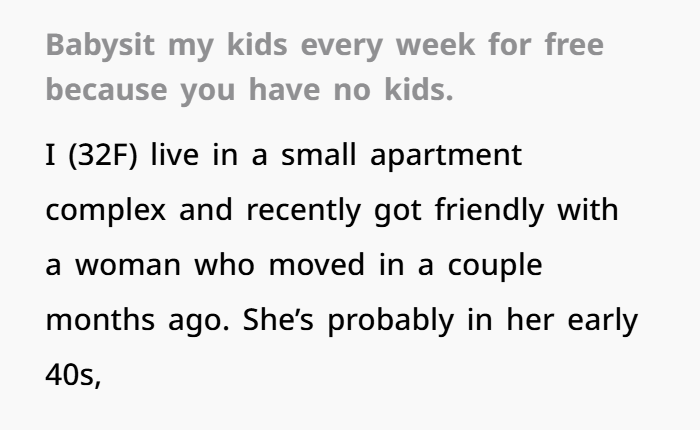
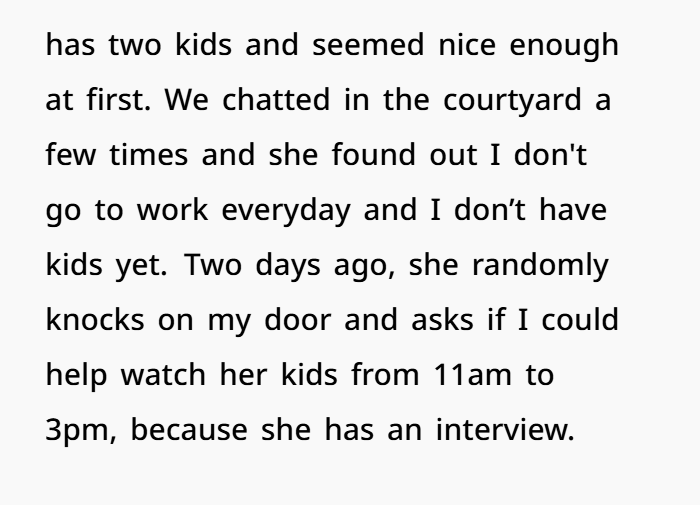
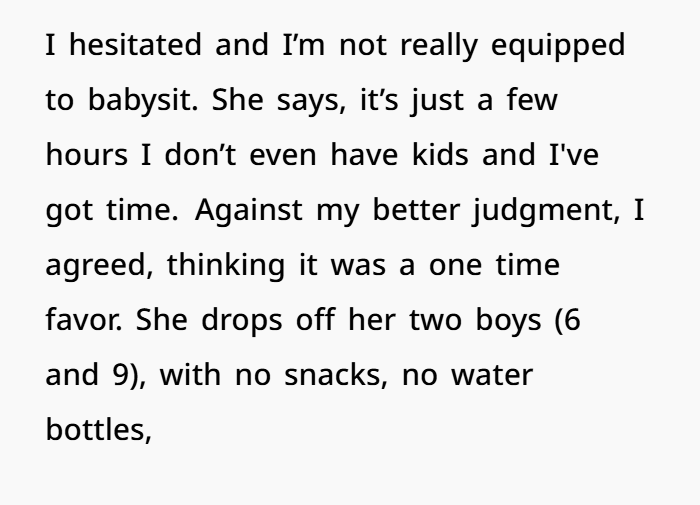


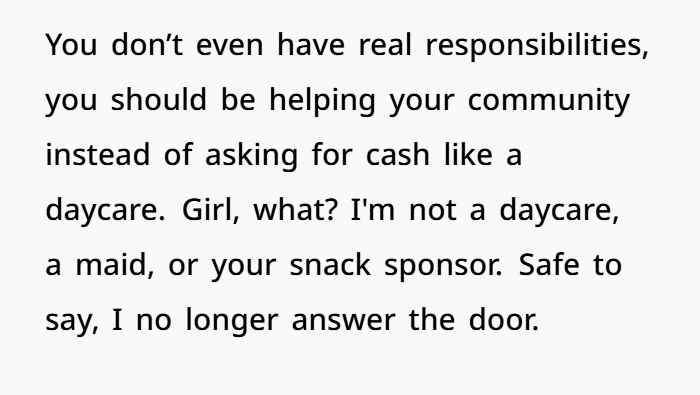
Navigating Boundaries and Legalities in Uncompensated Childcare Requests

In the tapestry of communal living, neighbourly interactions often oscillate between camaraderie and overreach. The scenario presented—where a neighbour expects regular, unpaid childcare services—highlights the delicate balance between community support and personal boundaries. This situation not only underscores the importance of clear communication but also brings to the fore legal considerations surrounding informal childcare arrangements.
Understanding Informal Childcare and Legal Implications
Informal childcare, often characterised by non-professional, unpaid caregiving, is common in close-knit communities. According to ChildCare.gov, most states do not require licensing for in-home childcare providers who offer care on an occasional basis or care for children from a single family. However, when such arrangements become regular and involve multiple children or families, they may fall under regulatory scrutiny.
The Fair Labor Standards Act (FLSA) stipulates that individuals employed in domestic service, including babysitters, are entitled to minimum wage and overtime pay unless they are casual babysitters. If the childcare provided is regular and integral to the parent’s employment, the caregiver may be considered a domestic service worker, thus entitled to compensation.
Tenant Rights and Landlord Considerations
From a tenancy perspective, providing regular childcare services from a rental property can raise concerns. Landlords may have clauses in lease agreements that restrict business activities within the premises. While occasional babysitting may not breach such terms, regular, structured childcare services could be construed as operating a business, potentially violating lease agreements.

Moreover, the presence of non-resident children in the property may lead to issues related to occupancy limits and noise complaints, affecting the living experience of other tenants. It’s crucial for tenants to review their lease agreements and consult with landlords to ensure compliance with property rules and regulations.
Establishing Boundaries and Communicating Expectations
The expectation to provide free childcare based on one’s availability or lack of parental responsibilities is a manifestation of entitlement. It’s essential to establish clear boundaries to prevent exploitation. A survey conducted by FiveThirtyEight revealed that 70.7% of respondents advocated for open communication to address such concerns. Engaging in a candid conversation with the neighbour to express discomfort and set expectations can be an effective approach.
If direct communication proves ineffective, it’s advisable to document interactions and, if necessary, involve property management or seek legal counsel to address the situation appropriately.
Netizens raised concerns about this woman’s cheap, entitled, and even suspicious behavior and supported the author for placing boundaries
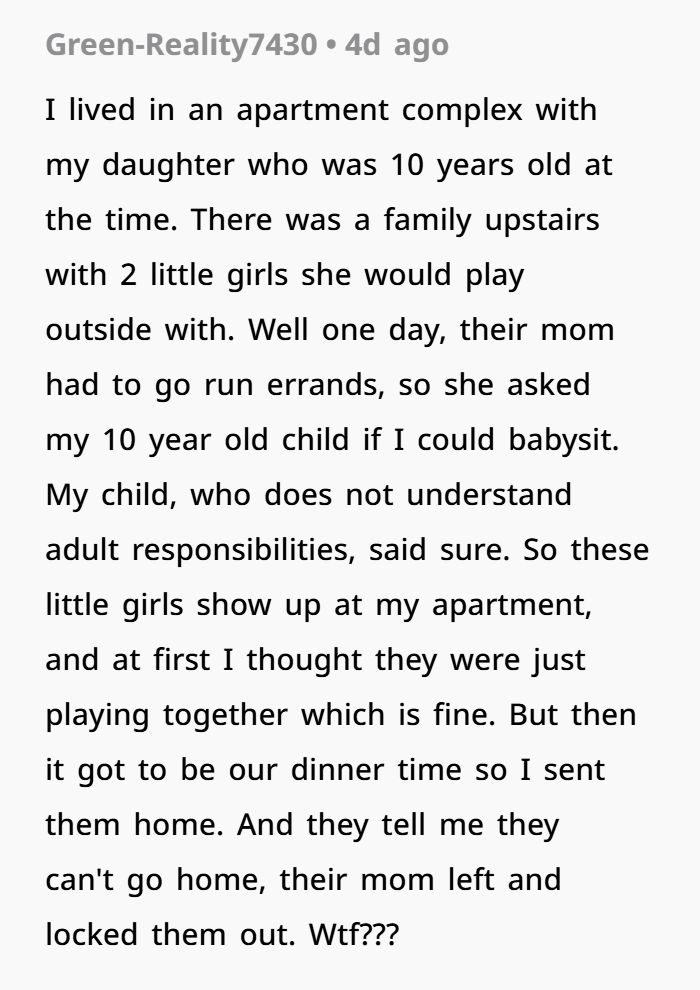
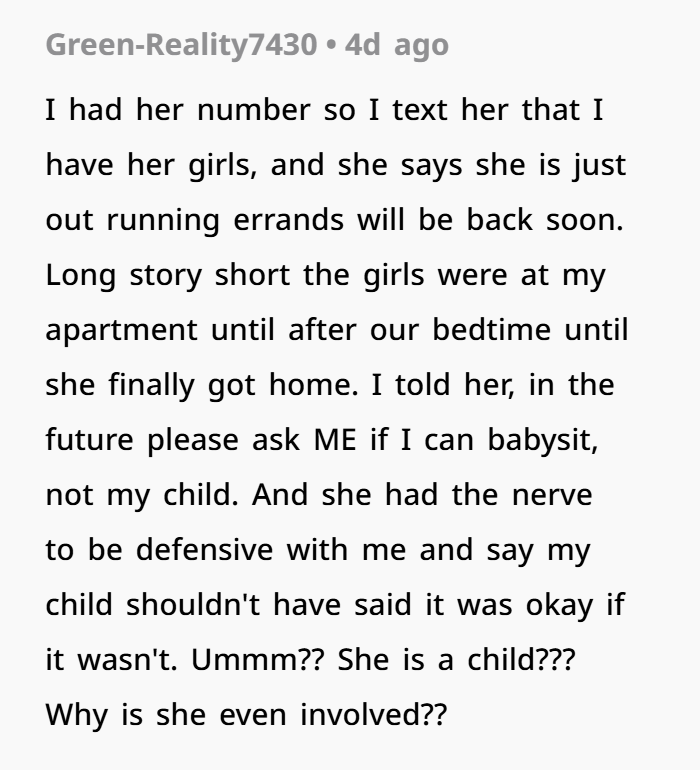


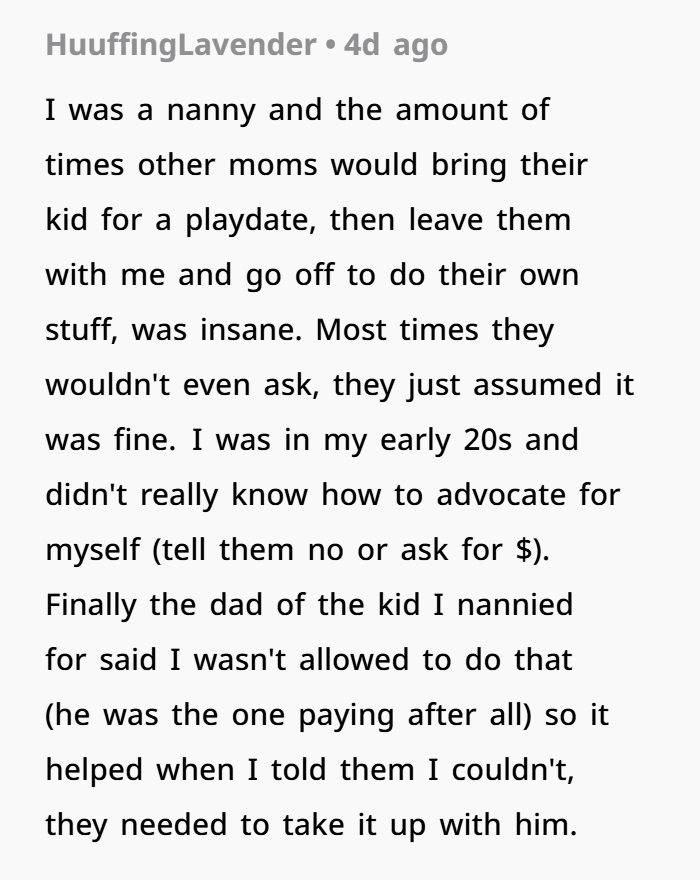
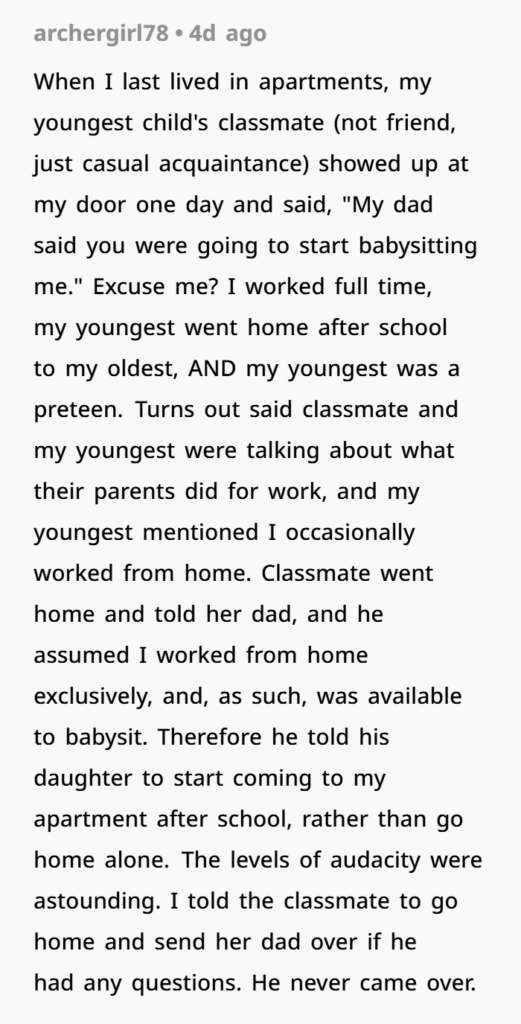
While community support is invaluable, it should not come at the expense of personal boundaries and legal obligations. Regular, unpaid childcare services, especially when expected without consent, can infringe upon one’s rights and potentially violate legal and tenancy agreements. It’s imperative to navigate such situations with clear communication, an understanding of legal implications, and a firm stance on personal boundaries to maintain respectful and lawful neighbourly relations.

